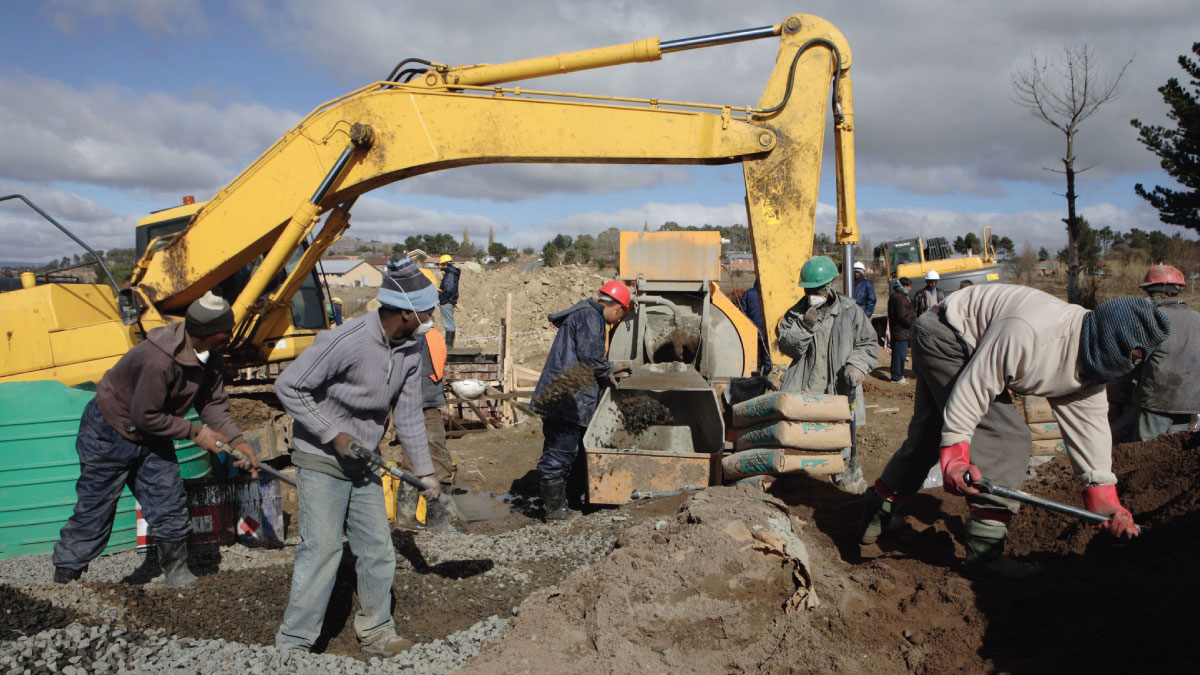A multi-agency programme strengthens the capacity of investment promotion agencies to increase sustainable investment in least developed countries.
© World Bank | A water system under construction in Lesotho, one of the countries participating in the capacity-building programme.
UNCTAD and its partners are building the capacity of over 60 officials from 20 least developed countries (LDCs) in investment facilitation and promotion for greater sustainable development impact.
The officials are drawn from Bangladesh, Chad, Djibouti, Ethiopia, Gambia, Haiti, Kiribati, Lesotho, Liberia, Madagascar, Malawi, Mozambique, Rwanda, Sao Tomé and Principe, Somalia, South Sudan, Timor Leste, Togo, Tuvalu and Uganda. They commenced the four-month online training programme on 20 September.
Despite growth in sustainable finance, investment flows are concentrated in developed and emerging economies, bypassing LDCs.
Developing countries received $372 billion in Sustainable Development Goals (SDGs) investment in 2021, with LDCs getting only 15% of it, a decline from 19% in 2020.
“We at UNCTAD believe that we have a window of opportunity now to attract new, transformative investment towards LDCs. This programme aims to improve the institutional capacity of LDCs to attract investment in SDG-related sectors,” UNCTAD Secretary-General Rebeca Grynspan said.
Building capacity to increase SDG projects
The programme will build the capacity of investment promotion agencies in LDCs to target and facilitate SDG-related projects through the creation of an “Executive IPA College” hosted on a digital platform of the International Training Centre of the International Labour Organization (ILO).
Under the programme, UNCTAD has produced pedagogical videos on key topics related to promoting and facilitating investment in SDG-related sectors including food security, health and the digitalization of investment promotion.
UNCTAD is implementing the programme in partnership with the UN Office of the High Representative for the Least Developed Countries, Landlocked Developing Countries and Small Island Developing States, ILO, the United Nations Industrial Development Organization and the World Association of Investment Promotion Agencies.
The programme is funded by the World Trade Organization’s Enhanced Integrated Framework.

